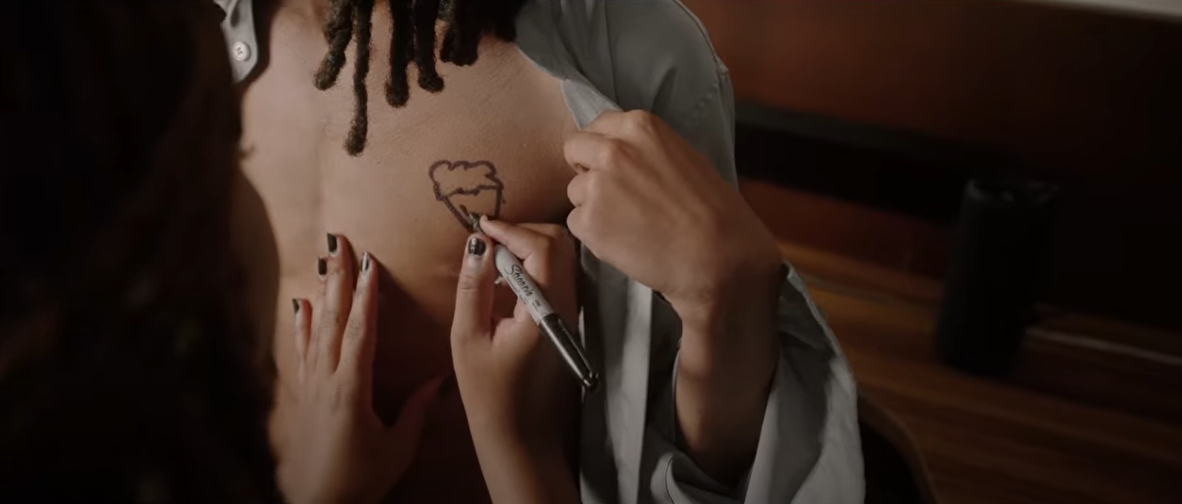There’s a moment in Sign Your Name when Xavier Edwards’ character, Artist X, quietly mutters, “I’m evolving as an artist.” It’s a telling line that not only defines his character’s arc but mirrors the film itself, a personal, often intimate short about change, artistic freedom, and staying true to oneself in the face of industry pressure.
Inspired by the journey of real-life musical icon Sananda Maitreya (formerly Terence Trent D’Arby), Sign Your Name tells the story of Artist X, a breakout R&B star struggling to break free from the formulaic expectations of his record label. Pushing against the commercial tide, X wants to experiment with rock music, even if that means disappointing his fans, his team, and perhaps even his girlfriend and fellow musician, Cupcake (Jordan Webber). It’s a universal story of the artist versus the machine, delivered with both style and heart.
From the outset, the film strikes a professional tone with a stylish intro from production company The Performance Lab No 33, a nod to classic studio logos that sets a promising precedent. The film unfolds quickly, dropping us into the disarray of X’s life: a tense hotel morning, a looming show, a forgotten poster approval, and an unrelenting label exec named Omar (Omar Long) pounding on his door.
The dialogue, particularly in early scenes, bounces between strong and serviceable, with a few noticeable shifts in tone and cadence. Still, it effectively establishes the core conflict: Omar demands another safe, formulaic R&B record; X wants to make something real and new. The clash reaches a peak when Omar tramples on X’s CD—both literally and symbolically, while insisting that commercial repetition is what sells: “Your next hit, Sign Your Name, sold over 4 million copies. You’re gonna make another called You Signed Your Name. That’s what people want.”
The director and editor make bold stylistic choices such as jump cuts, slowed footage, and occasional ADR mismatches that, while creative, sometimes come across as unpolished or unintentionally distracting. The film incorporates surreal visuals like b-roll of tadpoles transforming into frogs as a metaphor for artistic evolution. There’s an undeniable DIY charm in these stylistic risks. Not all of them land, but they give the project a unique identity, setting it apart from more sanitized indie shorts.
Musically, Sign Your Name is a success. The title track, a clear homage to Terence Trent D’Arby’s original, is a catchy, toe-tapping highlight. The rest of the soundtrack—including Stronger—is equally solid, showcasing the talents of its cast and production team. Even if you're unfamiliar with Sananda Maitreya, as I was before watching the film succeeds in piquing curiosity. By the time archival footage of the real artist rolls at the end, it’s clear how closely Xavier Edwards studied his moves and mannerisms, eerily so.
While Sign Your Name does have minor technical flaws, what it delivers in return is sincerity, heart, and a welcome message about the importance of following your artistic truth. It’s a tribute piece, a love story, and a statement on the price of creativity—all wrapped in a short film that, like its central character, refuses to be boxed in.
Jessie Hobson





